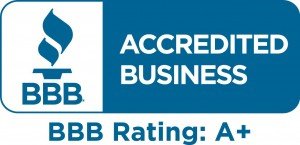
Employers like to hire individuals who are confident about their ability to do the job and are also sincerely interested in working for them. If it comes down to a difficult decision of who to hire, they will go to the person who they feel really wants to work for them. How do you become that person? You become that person with your follow-up process.
Below is a list of the various times when you need to establish a follow-up system.
1. After you send a resume to a prospective employer: In your cover letter, you should state you will follow-up by phone within a week. Make sure you do exactly that.
2. After your interview: You want to send a thank-you letter to each individual you met. Ask everyone for their business cards so you have the correct spelling, title and address.
3. If you are utilizing a search or staffing firm, you also want to thank them for scheduling your interview.
4. If you received a job lead from someone else, you want to keep them informed about your progress and also thank them for their referral.
5. You need to follow up after each interview, to keep the process moving forward.
6. When you provide a list of references, make sure you follow-up with each reference, so they will be expecting the call.
7. When you get a job offer, you want to send a thank-you note expressing your enthusiasm about their offer.
I want to stress the fact that a follow-up system is not stalking. You don’t want to constantly call individuals for a status report. Often employers have a difficult time telling you that you’re out. They just don’t return your calls.
Understand time kills deals. If you have been pending for a much longer time than anticipated, chances are they have screened you out and are still interviewing to find a better fit. Most employers won’t tell you that you have been screened out until they hire someone for the job. Often, they forget to let you know when the position is filled.
On the other hand, when an employer feels someone is a great fit, the interviewing process often shortens. There is a fine line here and a set system will keep you informed, keep the interviewing process moving forward and it will put you in the best position to find your new job.
ABOUT THE AUTHOR, Ingrid Moore
Ingrid Moore is the President and Owner of Corporate Resources of Illinois, an employment & staffing agency with over 20+years’ experience located in Schaumburg, IL. Ingrid and her team assist employers with finding the right hire for their business. For more info, follow us on our LinkedIn Company Page, or follow us Corporate Resources of Illinois‘s Google+ page.




